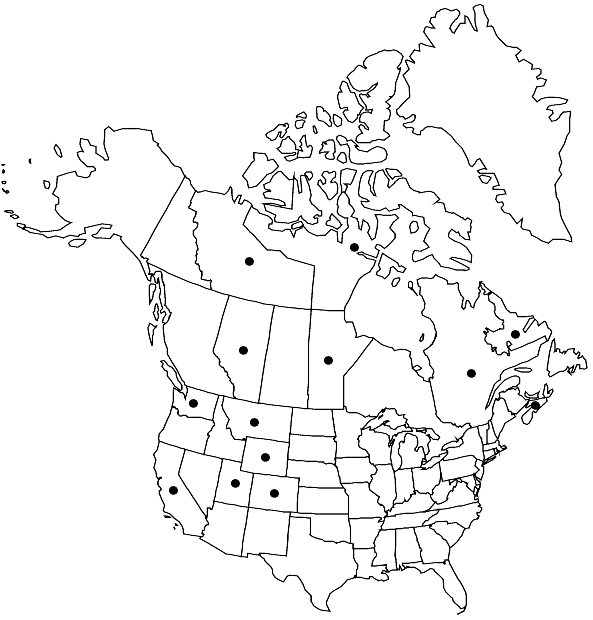Difference between revisions of "Polytrichastrum alpinum var. septentrionale"
Mem. N.Y. Bot. Gard. 21(3): 37. 1971,.
imported>Volume Importer |
imported>Volume Importer |
||
| Line 61: | Line 61: | ||
|publication year= | |publication year= | ||
|special status= | |special status= | ||
| − | |source xml=https:// | + | |source xml=https://bitbucket.org/aafc-mbb/fna-data-curation/src/2e0870ddd59836b60bcf96646a41e87ea5a5943a/coarse_grained_fna_xml/V27/V27_150.xml |
|genus=Polytrichastrum | |genus=Polytrichastrum | ||
|species=Polytrichastrum alpinum | |species=Polytrichastrum alpinum | ||
Latest revision as of 21:24, 5 November 2020
Stems to 2 cm, slender and wiry, in dense tufts. Leaves densely imbricate, not fragile, channeled and incurved when dry, scarcely spreading when moist; not constricted at junction of sheath and blade, the blade persistent, sheath broadly elliptic; marginal lamina typically entire, or finely and remotely serrate toward the tip. Capsule small and subglobose.
Habitat: Soil
Elevation: moderate to high elevations
Distribution

Alta., Man., Nfld. and Labr. (Labr.), N.W.T., N.S., Nunavut, Que., Calif., Colo., Mont., Utah, Wash., Wyo., Europe, n Asia.
Discussion
Variety septentrionale is an arctic-alpine taxon. In arctic North America there is a correlation between capsule shape and leaf serration, plants with distinctly serrate leaves having ovoid-cylindric or cylindric capsules, whilst those with entire or subentire margins have subglobose or ovoid capsules (D. G. Long 1985).
Selected References
None.